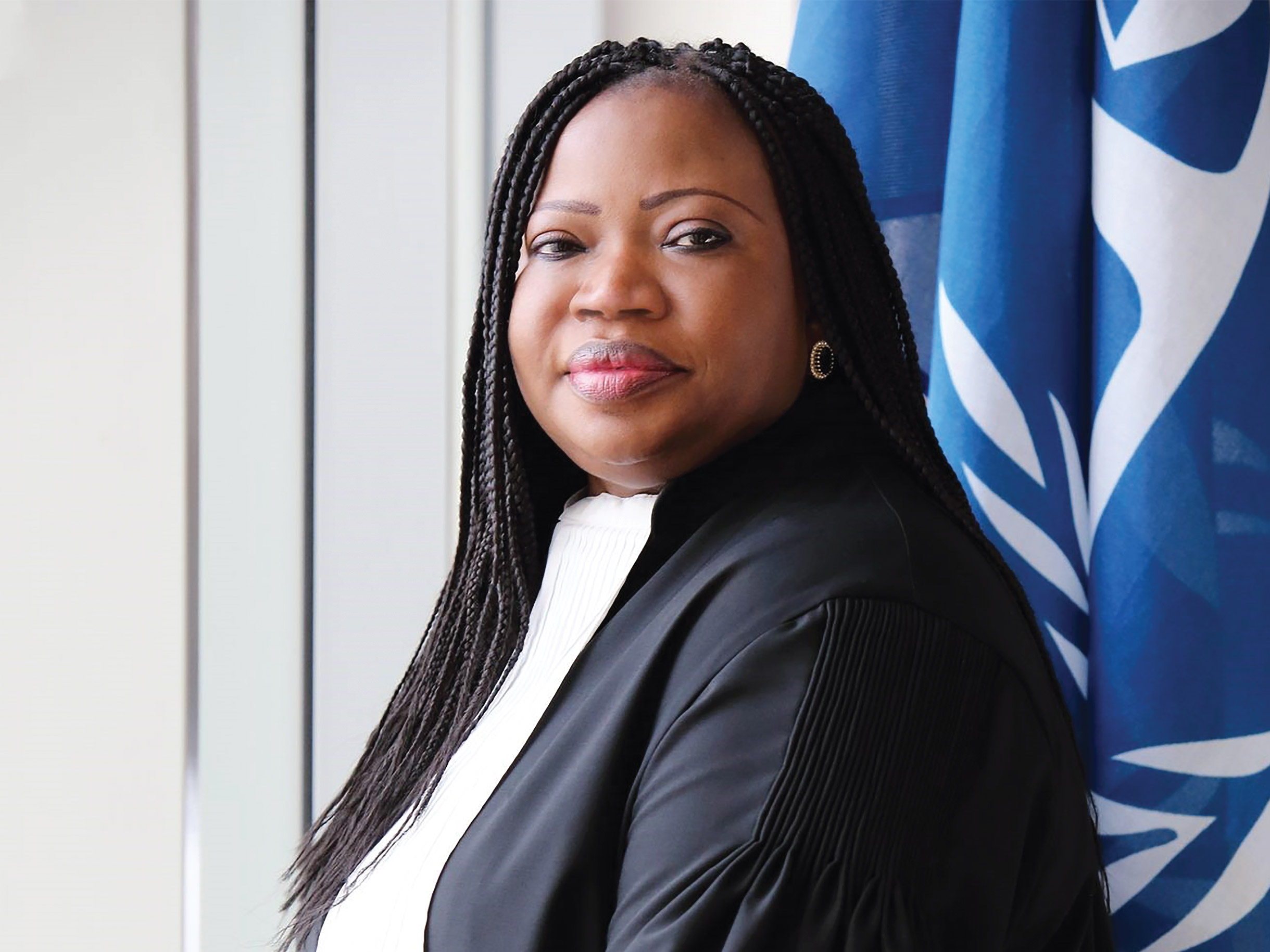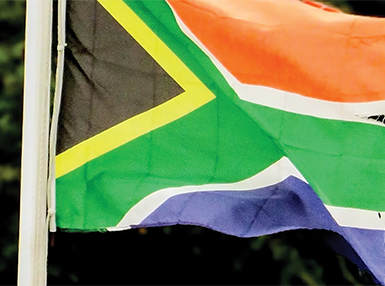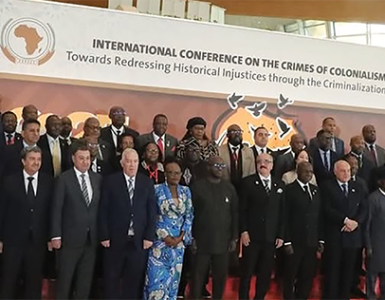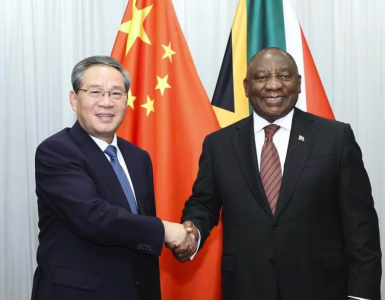Law:Africa must advance the rule of law
By Dr. Fatou Bensouda
During apartheid, Nelson Mandela’s name became a beacon of light in the struggle against oppression and injustice. With courage on one hand, and tenacity on the other, he guided South Africa through murky waters and wrote his name on the sands of time as a symbol of peace and reconciliation, resonating across Africa and beyond.
Many of us across the continent remember hearing songs of praise about Mandela. Despite being held captive far away in Robben Island, Madiba’s voice and principles echoed and guided us. He was present in our conscience and daily lives; embedding in me an innate strive for justice, especially in my early years as a human rights practitioner. The more I learnt about Madiba, the more I learnt about steadfastness and resolve. His dedication to non-violence in spite of his circumstances, remains an upright quality we must continue to uphold in turbulent times, even in South Africa today.
I should confess that the relationship between international criminal justice, the rule of law and sustainable development has attracted and continues to engender interesting but at times, very heated and controversial debates. One of those being the classic dilemma of pursuing peace versus justice.
I have always been of the view that peace and justice must work contemporaneously. Prioritising one over the other jeopardizes the chance of achieving either. As is often cried on the frontlines, no justice, no peace.
For this reason, I remind fellow human rights practitioners how important it is for communities to understand that the promise of peace comes with justice and accountability. I believe this package is a more sustainable recipe for actualising Madiba’s vision of transitional justice; whether through redress or transformation of political and social systems. We must continue to question how we approach these processes to attain more sustainable and progressive futures.
Sustainable development meets the needs of the present, without compromising the ability of future generations to meet their own needs. It calls for concerted efforts towards building an inclusive and resilient future for people and our planet.
To achieve sustainable development, we must harness our social capital and efforts of civil society on the ground, to build more robust and responsive instruments of change.
Goal 16 of the 2030 Sustainable Development Goals identifies three key elements namely: Peace, Justice and Strong Institutions. The goal is to promote peaceful and inclusive societies, provide access to justice for all, and build effective, accountable and inclusive institutions at all levels. I will address our questions by discussing these three themes.
At a glance, it is evident that conflict is an ever-present process in human relations; with PEACE being the desired antidote. As a proud African, I want to see Africa as most Africans do: a prosperous and more peaceful Continent in which democratic values, the rule of law, and human rights are respected and advanced.
With over three thousand ethnic groups and a myriad of languages, Africa is amongst the most heterogeneous regions in the world. However, this seeming blessing has equally fueled past and ongoing conflicts, often fought along ethnic and religious lines.
It is important for governments – especially democratic governments, to understand that their primary duty is to safeguard the rights of citizens – whether economic, political or social. This is what toils fertile ground for inclusive and sustainable development, rooted in values of peace and unity. In principle, any government unable to safeguard these rights has failed to discharge its primary duty.
When a government does not invest in human development, namely healthcare, education and standard of living, the people despair.
When a government does not adopt growth-oriented policies, factoring comprehensive socio-economic challenges, the people despair.
When a government runs a sham democracy and fails to take into account the sociopolitical plight of vulnerable and marginalised groups, the people despair.
I dare to say that the level of greed and impunity on the African continent strongly limits our strive towards lasting peace. When leaders sabotage their own countries, do they not have future generations in mind?
This short-sightedness fails to anticipate the ripple effect of their actions, not only on themselves but on the people whom they took an oath to serve. We must hold accountable the perpetrators of neopatrimonial politics and gerontocratic regimes with outdated imaginaries of the state.
Through his work and lived experience, Madiba taught us that embracing our identity should not come at the expense of humanity. He galvanised a country divided along racial lines under the umbrella of a ‘rainbow nation’. Madiba dreamt of a nation where peace and freedom formed the foundational basis of a modern democracy. Towards the turn of the century, he brought promising hope to Africa, the African diaspora, and marginalised people across the world.
However, as we know, Rome was not built in a day. Recent events in South Africa have shown that there is urgent work to be done, to build a more inclusive society. It is clear that economic inequality and mistrust in public institutions has fueled a hostile response amongst the people. The expanding wealth gap is a clear pointer that we must work towards a progressive economic model that levels the playing field.
We must work together to keep the Madiba candle of hope burning in a time where multilateralism, neo-apartheid, and weak pillars of accountability continue to impede sustainable development. Despite the many challenges, there is room for progress, to reduce inequality, fight corruption, and restore trust.
The legacy of apartheid is a vivid example of the urgency for systemic change. However, this reform must be sustainable, meaning all parties must be served including those in the margins (victims, the dispossessed, women, children), and a propelled spirit of resistance should bring foresight and comprehensive policy building.
This also means lifting systematic and institutional barriers, by providing equal opportunity for all members of society — including women in critical decision-making — to thrive, reach their full potential, and to succeed. We have a collective responsibility to advance gender parity in Africa and beyond.
It has been a commitment of mine to champion the rights of women and children, and increasingly those of younger generations. When the youth are disregarded, both imminent and future progress is stifled. This is a threat to future economies and the sustainable development of our continent and the world.
While examining the relationship between international criminal justice and the broader challenges of attaining sustainable development, it is important to stress that the independent mandate of the Court and its Office of the Prosecutor must always be respected and protected. This institution, seeking justice for victims, should be shielded from political interference, resource paucity, and any other internal risks which may threaten its effectiveness and efficiency.
If we flip through the pages of history, we are constantly reminded that there can be no healing without peace; there can be no peace without justice; and there can be no justice without the rule of law.
Globally, the number of people fleeing war, persecution and conflict currently exceeds 70 million. To combat this comprehensively, new systems must involve diverse factions of society, including across borders. At the core, lies the safeguarding of future generations, the young torch bearers of our tomorrow.
According to UNICEF, about 33 million children have been forcibly displaced worldwide by violence and conflict, with an estimated 19.4 million of them within their own countries. Furthermore, crimes against children, involving the use of child soldiers for example, call for urgent action at all levels.
It is estimated that by 2050, Africa will have the greatest potential among all continents in respect of its young and dynamic labour force. Protecting and cultivating this enormous potential must be a strategic imperative for African countries.
In a world where our struggles are increasingly interconnected and the value of preemptive measures is evident, we must engage all critical actors: governments and their institutions, international, non-governmental organisations, and civil society.
There is more work to be done. We MUST pursue peace by upholding the rule of law through strong institutions, and strive towards a more just world.
I remember hearing stories of how Madiba reacted to maltreatment by prison personnel.
Only someone with such integrity and foresight could sustain Madiba’s frame of mind. He understood that burning bridges, while always an option, was not a viable alternative in the given circumstance. Preserving these ideologies, as effectuated by the work of the Nelson Mandela Foundation, defines how we recount history on our own terms, and shape young minds of today for tomorrow.
So, I implore us to ponder the bigger picture and embrace the goal of peace, justice and sustainable development within the framework of strong institutions.
Let me end by asking, what is YOUR contribution to sustainable development?
We must remember and uphold our collective and individual roles and responsibilities as active citizens of the globe. How we choose to come together in solidarity, to build systems of accountability that strive towards peace and justice, can truly forge transgenerational impact and sustainable change. As Mandela, the great rock of QUNU, said: “it is in your hands to make a difference”.
Much work has been done, but there are miles to go still, before we sleep.
(Dr. Fatou Bensouda is a former International Criminal Court Prosecutor . This is an edited speech she delivered at the 2021 Nelson Mandela Foundation Lecture this week.)
































